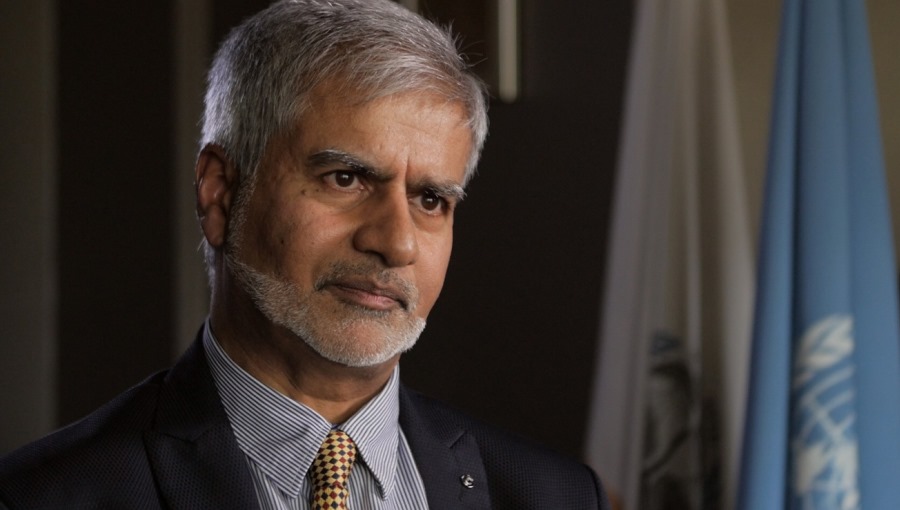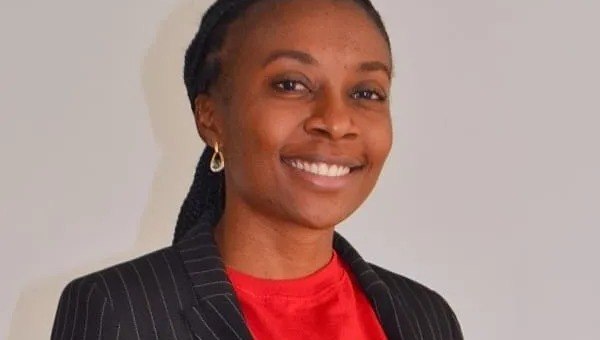Championing Human Rights: Meet Professor Lyal S. Sunga
Born and raised in Ottawa, Canada, Dr. Lyal S. Sunga received a Bachelor’s degree in Political Science and Philosophy at Carleton University in Ottawa, before getting a law degree from Osgoode Hall Law School in Toronto. He subsequently earned a Master’s in International Human Rights Law from the University of Essex, UK and a PhD in International Law from the Graduate Institute of International and Development Studies in Geneva, Switzerland. After seven years working for various agencies of the United Nations, Dr. Sunga became Associate Professor and Director of the Human Rights Master’s programme at the University of Hong Kong Faculty of Law. He also taught at the Raoul Wallenberg Institute in Lund, Sweden, taking leave in 2007 for several months to serve as Coordinator for the UN Human Rights Council’s Group of Experts on Darfur. He moved to Rome in 2009, then he lived in The Hague from 2015 to 2018 before moving back to Rome in 2018.
Your work focuses on human rights, humanitarian law, and criminal justice. How did you first become interested in these issues?
While recovering from an illness for a week in bed as a kid, I ended up watching live proceedings for the impeachment of President Richard Nixon. I quite disliked Tricky Dicky, not least because of his lies concerning American involvement in the Vietnam War. Transfixed by the hearings, I was deeply impressed at how one branch of Government eventually could hold Nixon, the sitting Head of State, to account and force him to resign. It made me wonder whether criminal responsibility could be imposed on political leaders of any country, not just for the kinds of transgressions like the Watergate burglaries, but for launching war and ordering or committing war crimes in other countries. In fact, I wrote an essay for my Grade 8 class arguing that Heads of State should be held personally responsible for wars they start. I totally forgot about the Grade 8 essay and only rediscovered it among my childhood papers years after I had written my doctorate thesis, which makes the same arguments. Evidently, I haven’t had any new ideas since March 1973.
Tell us about your doctorate thesis.
My doctorate thesis focuses on “Individual Responsibility in International Law for Serious Human Rights Violations,” in other words, how to use international law to hold individual perpetrators criminally responsible for the worst kinds of violations of human rights (such as genocide, torture, slavery) and of humanitarian law (such as launching a war without lawful excuse, war crimes or crimes against humanity). It’s an important issue simply because the most serious, systematic and widespread violations frequently are committed by individuals, such as Heads of State, ministers, army commanders, soldiers and police who abuse State power and authority entrusted to them. In such situations, domestic courts might be unable or unwilling to prosecute such people. When I began my Doctorate studies back in the mid-1980s, I found that the relevant rules were scattered, incoherent and inadequate and that international criminal law was quite neglected by scholars and diplomats alike. True, the Nuremberg and Tokyo International Military Tribunals did prosecute Axis power leaders and organizers following World War Two, but then for decades afterward, there was almost no progress: Cold War distrust had prevented international cooperation to solve this and many other challenges. In 1993, just a few years after the Berlin Wall was torn down, and a breath of fresh new optimism warmed East-West relations in UN corridors, the Security Council took bold action to establish the International Criminal Tribunal for the Former Yugoslavia so that war criminals responsible for the shocking violations could be prosecuted and punished for them.
Tell us about your work as special investigator for the UN Security Council’s Commission of Experts on Rwanda.
In August 1994 while I was conducting research in Geneva the then UN High Commissioner for Human Rights Jose Ayala Lasso called me into his office. He requested me to assist the Security Council’s Commission of Experts on Rwanda that Secretary-General Boutros Boutros-Ghali had appointed on 1 July 1994 to investigate facts and responsibilities relating to atrocities perpetrated during the Rwandan Civil War. That war, fought between 6 April and the end of June 1994, involved the genocidal massacre of between half a million and one million mainly ethnic Tutsi and moderate Hutus throughout Rwanda. Our investigations involving inspection of massacre sites, interviews of witnesses and review of documentary and other evidence, revealed that Hutu militia allied with the Government had attempted to wipe out the entire Tutsi community – about 14% of the Rwandan population – in an organized, premeditated and systematic manner.
What I saw during these missions to Rwanda in 1994 was really horrific and the nature and scale of the atrocities finally shocked the international community, which hadn’t done anything meaningful to stop the genocide when it was happening. The violations fit all the legal requirements of the crime of genocide and crimes against humanity as defined in international law (as well as violations of Article 3 common to the four Geneva Conventions of 1949). Based on the investigations we conducted and the Commission’s reports, the Security Council acted swiftly on 8 November to establish the International Criminal Tribunal for Rwanda, which marked a significant chapter in international criminal law.
I continued as UN Human Rights Officer in Geneva to set up a UN human rights field operation in Rwanda, worked on the situation in Iran and served as Coordinator of a team to monitor the human rights situation across the Asia-Pacific region. I also worked on human rights questions concerning counter-terrorism, served as the High Commissioner’s representative to the Rome Diplomatic Conference on the Establishment of the International Criminal Court, and dealt also with human rights relating to the administration of criminal justice, the World Conference on Racism and on many others issues.
What advice would you give to someone who would like to follow your footsteps and work in the field of human rights?
To tackle the world’s most urgent challenges, whether through the UN, regional arrangements governmental, non-governmental institutions, academia, community-level voluntary associations or as an individual, I believe solid theoretical, practically oriented knowledge is indispensable. Maybe there are a million ways to do that, but I personally consider the University, intergovernmental institutions, Governments, and the media essential for sharing critical thought meaningfully, efficiently and widely.
What is your teaching philosophy? What would you like students to take away from your classes?
Skepticism of the kind developed by Pyrrho and Sextus Empiricus of ancient Greece, coupled with thoroughgoing Socratic pedagogy. Of course, all of us have to master fundamental principles and learn substantive content, but I believe everyone should subject themselves and others, especially professors and other ‘authorities’, to regular, rigorous and informed critical scrutiny. Practically speaking, my students follow very structured, content-based lectures, but these are punctuated continually with spontaneous, interactive debate along the way. Asking the right questions is always more important than ‘the answers’ in this sense, because answers are, will be and should be always recognized as tentative and hypothetical to the extent that knowledge and society continue to change and develop. We cannot, however, get very far if our questions are misinformed, irrelevant, out-of-date or incorrectly premised. In this sense, I think that critical scrutiny of accepted truths, regardless of whomever may hold them, but especially those of persons in positions of authority, remains essential to asking new, pertinent and searching questions. It’s vital even for our continued existence on this planet and for full respect for human dignity in general. Nothing could make me happier if students went forward not just with knowledge from today’s classes which perforce is tentative, transitory, even ephemeral, but with a sharper critical eye for key issues and opportunities to improve our world now and for the future.
Dr. Sunga teaches ‘Human Rights’, ‘International Criminal Law’ and ‘Terrorism and Counter-Terrorism’ at JCU. He currently also serves as Affiliated Professor, Raoul Wallenberg Institute of Human Rights and Humanitarian Law in Lund, Sweden, Visiting Professor at the American University of Rome, Visiting Professor at Strathmore University Law School in Nairobi, Kenya, and Visiting Professor at the Addis Ababa University Centre for Human Rights, Ethiopia. Since 2014, he has been lecturing every year in a UN-sponsored human rights summer school program in cooperation with nine Russian universities which has taken him thus far to Moscow, Kazan, Voronezh, Yekaterinburg and Perm.
Read Dr. Sunga’s review essay of Professor Noam Chomsky’s book Yugoslavia: Peace, War and Dissolution in Philosophy and Society?






